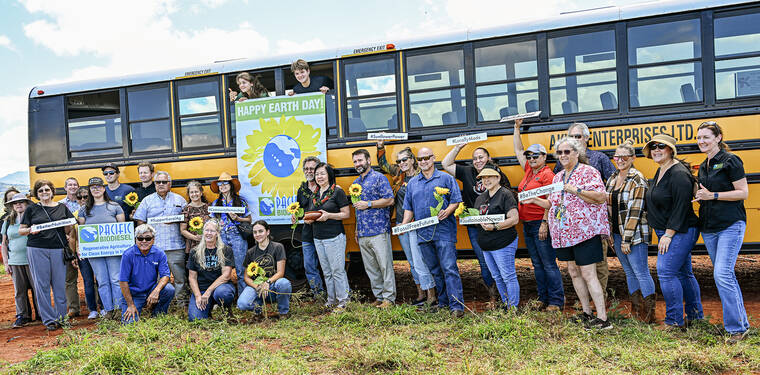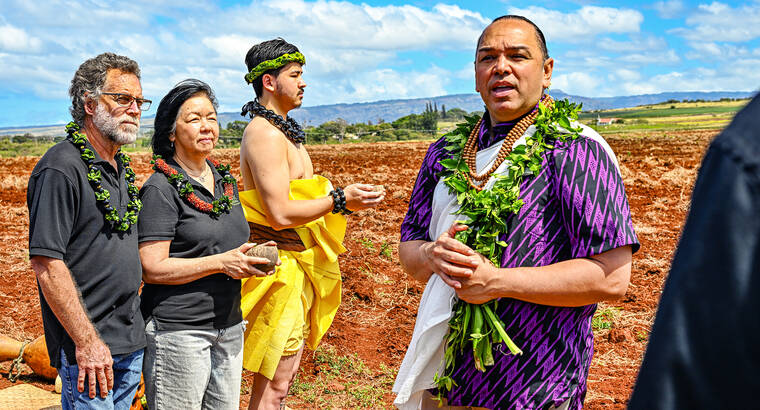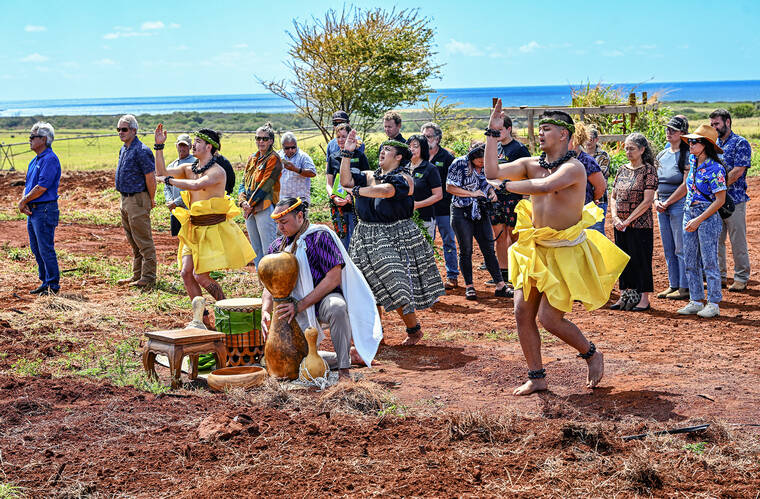KAUMAKANI — During the site blessing on April 22 by Kumu Hula Troy Hinano Lazaro and Halau Ka Pa Hula O Hinano, the kumu offered Pacific Biodiesel’s founders Robert and Kelly King a calabash of pa‘akai with a message — welcome to Kaua‘i.
The invitation-only blessing marks the expansion of agricultural operations to Kaua‘i as part of a federally funded project to develop a model for regenerative agriculture-based biofuel produced in Hawai‘i from multiple locally grown oilseed cover crops.
“As we work to combat climate change and advance Hawai‘i’s clean energy goals, Pacific Biodiesel’s new facility will help produce sustainable and renewable biofuel while also supporting our local farmers,” said Sen. Mazie Hirono during a visit to the facility on Gay &Robinson property in late March.
“I supported the federal funding for this project which will help reduce our reliance on imported oil while creating local jobs, and bolstering our agriculture industry.”
The project is a multi-year agreement between Pacific Biodiesel and the U.S. Army Corps of Engineers Engineer Research and Development Center’s Construction Engineering Research Laboratory that will demonstrate renewable biofuel produced in Hawai‘i from multiple locally grown oilseed cover crops, and the effort will strengthen Hawai‘i’s food security, energy security and supply chain resiliency.
Initially, the company’s farming will be done on Gay &Robinson land, utilizing new and existing fields for oilseed cover crops in rotation with other food and fuel crops.
The project’s model will include expanded production of culinary oils and other value-added food products, meal for animal feed, biodiesel, and co-products from biodiesel, such as glycerin and potassium salt-cake, which can be used as a non-petroleum fertilizer for local agriculture.
“There’s nothing here, now,” said Joy Galatro, the marketing director for Pacific Biodiesel, as the audience that included Robert King, Kelly King, officials from Gay &Robinson, Felicia Cowden of the Kaua‘i County Council and other community leaders reached the blessing site of freshly plowed red dirt that swirled in the winds for which Kaumakani is named.
The site is the first Kaua‘i sunflower field for Pacific Biodiesel.
“Around as early as July, there will be sunflowers, everywhere,” Galatro said. “We’ll have enough sunflowers to fill the three silos that was built as part of the processing plant that includes seed crushing.”
Pacific Biodiesel said local biodiesel is produced from locally-grown oilseed cover crops like sunflowers, which the company utilizes to produce culinary oils and meal for animal feed.
Pacific Biodiesel’s founders are sustainably farming sunflower and other “high oil yield” biofuel cover crops with the aim for 100 percent local feedstock production as demand for local biodiesel continues to increase.




